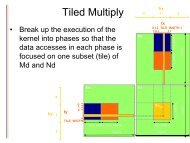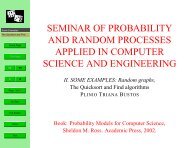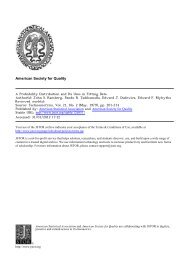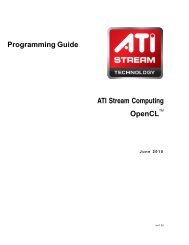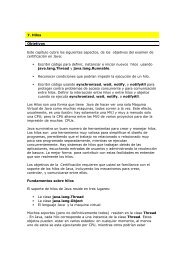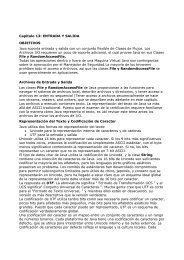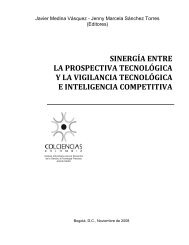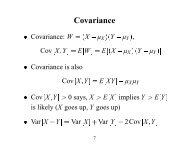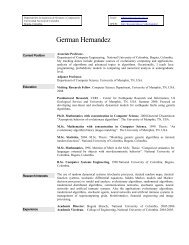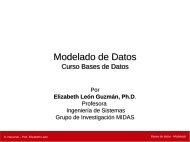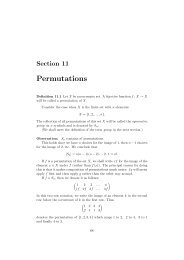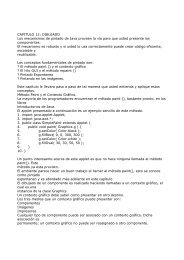An Introduction to Functional Programming Through Lambda Calculus
An Introduction to Functional Programming Through Lambda Calculus
An Introduction to Functional Programming Through Lambda Calculus
Create successful ePaper yourself
Turn your PDF publications into a flip-book with our unique Google optimized e-Paper software.
- 152 -else ==cond λdummy. λdummy. false ==false λdummy. λdummy. -> ... ->λdummy. identity ->This delayed evaluation approach is similar <strong>to</strong> the use of thunks <strong>to</strong> implement ALGOL 60 call by name. A thunk is aparameterless procedure which is produced for a call by name parameter <strong>to</strong> delay evaluation of that parameter until theparameter is encountered in the procedure or function body.Note that <strong>to</strong> follow this through, all definitions involving booleans also have <strong>to</strong> change <strong>to</strong> accommodate the new formsfor true and false. We won’t consider this further.We could also use abstraction <strong>to</strong> build an applicative order version of recursive: we won’t consider this furthereither.The effect of using abstraction <strong>to</strong> delay evaluation is <strong>to</strong> reintroduce the multiple evaluation associated with normalorder. <strong>An</strong>y expression which is delayed by abstraction must be evaluated explicitly. Thus, if bound variablesubstitution places a delayed expression in several places then it must be explicitly evaluated in each place.Clearly, for functional language implementations based on applicative order evaluation some compromises must bemade. For example, LISP is usually implemented with applicative order evaluation but the conditional opera<strong>to</strong>r CONDimplicitly delays evaluation of its arguments. Thus, the definition of recursive functions causes no problems. LISPalso provides the QUOTE and EVAL opera<strong>to</strong>rs <strong>to</strong> delay and force expression evaluation explicitly.8.7. Evaluation termination, the halting problem, evaluation equivalance and the Church-Rosser theoremsWe have tacitly assumed that there is some equivalence between normal and applicative order and we have switchedbetween them with cheery abandon. There are, however, differences. We have seen that normal order may lead <strong>to</strong>repetitive argument evaluation and that applicative order may not terminate. Of course, normal order may notterminate as well. One of our first examples:λs.(s s) λs.(s s)showed us this.In general, there is no way of telling whether or not the evaluation of an expression will ever terminate. This wasshown originally by Alan Turing who devised a formal model for computing based on what are known as Turingmachines. Turing proved that it is impossible <strong>to</strong> construct a Turing machine <strong>to</strong> tell whether or not an arbitrary Turingmachine halts: in formal terminology, the halting problem for Turing machines is undecidable.Church’s thesis hypothesised that all descriptions of computing are equivalent. Thus any result for one applies <strong>to</strong> theother as well. In particular, it has been shown that the λ calculus and Turing machines are equivalent: for everyTuring machine there is an equivalent λ expression and vice-versa. Thus, the undecidability of the halting problemapplies <strong>to</strong> the λ calculus as well so there is no way <strong>to</strong> tell if evaluation of an arbitrary λ expression terminates. Inprinciple, we can just go on evaluating individual λ expressions in the hope that evaluation will terminate but there isno way of being sure that it will.To return <strong>to</strong> normal and applicative order reduction: two theorems by Church and Rosser show that they areinterchangeable but that normal order gives a better guarantee of evaluation termination.



